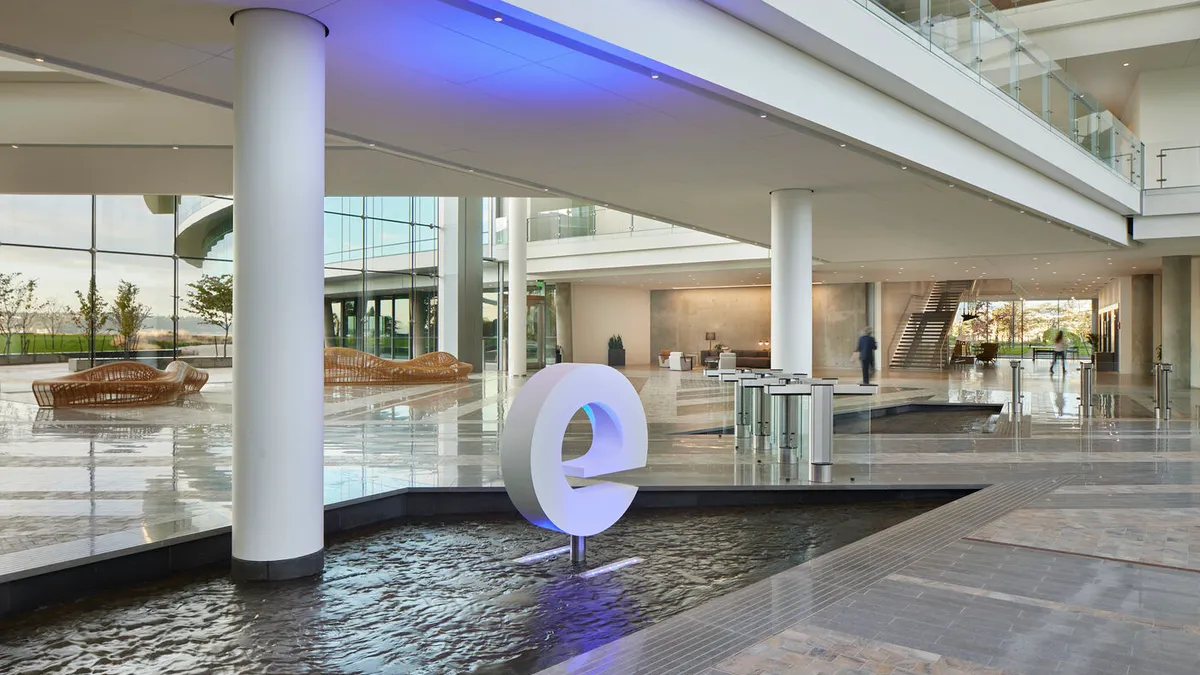Enterprises and their technology leaders are still in search of the ideal adoption pace for emerging technologies such as generative AI and, more recently, AI agents.
Expedia Group was one of the first enterprises to start working with OpenAI after its hallmark tool launched in 2022, according to Shiyi Pickrell, SVP of data and AI at the company. The Vrbo and Hotels.com parent company embedded ChatGPT into its customer-facing app and created a plugin as it looked to capitalize on interest in the technology.
Pickrell characterized the efforts as chapter one.
As the company’s strategy matured and its portfolio of AI tools and projects expanded, the company has worked to balance innovation with speed, scalability and costs.
“There’s lots of excitement out there, and we do get a lot of knocks on the door,” Pickrell told CIO Dive. “Sometimes it could be distracting, sometimes it could be eye-opening.”
The travel company sees AI as an accelerator across its strategic priorities, which include driving better experiences, growth and operational efficiencies.
We work to balance what I call 'the bread and butter' and then also the trailblazing stuff.

Shiyi Pickrell
SVP of data and AI at Expedia Group
“It's not just about cost reduction,” CEO Ariane Gorin said in reference to AI during Expedia Group’s Q4 2024 earnings call in February. “It will enable our teams to spend more time where they can have the biggest impact.”
Different departments lean on different tools. Developers are using Microsoft’s GitHub Copilot, which has increased code quality and enhanced the testing process, Pickrell said. Expedia’s marketing team uses generative AI to search through image libraries and iterate on taglines, saving time and augmenting creativity.
“We work to balance what I call ‘the bread and butter’ and then also the trailblazing stuff,” Pickrell said.

The travel company has partnerships with some of the largest technology vendors and frequently checks in on their road maps to get a sense for what’s coming.
Most vendors are now promoting agentic features and services.
“There’s so much hype on agents, and I want to caution ourselves,” Pickrell said. “If you just jump straight to agents, you could not be mindful of existing flows or you may take the human out of the loop.”
The generative AI playground
Enterprise AI initiatives tend to hit some bumps in the road, from declining employee enthusiasm for the technology to technical challenges and change management fumbles.
Expedia Group has worked to boost engagement and navigate some of the most pressing technical challenges by building a kind of generative AI playground for its employees.
“It’s really for the general employees regardless of what kind of roles they have,” Pickrell said. “It’s still early on, but I see very promising engagement.”
Inside the playground, employees can experiment with around 19 large language models via a secure interface that tracks costs. The platform rolled out in January, amassing more than 10,000 sessions and leading to the creation of nearly 200 AI agents, according to Pickrell.
Despite vendor promises of transformation, Expedia Group has kept things simple when it comes to agents, Pickrell said. The technology is explained to employees in three phases:
- First: A technology that completes a task, such as searching for images or fetching information.
- Second: A technology that completes a series of tasks.
- Third: A technology that can orchestrate or manage a chain of tasks.
The company relies on its responsible AI council, composed of legal, security and tech pros, to ensure that each use case is vetted properly. Use cases are often divided into two main categories: low risk and high risk.
“There is no compromise on responsible AI,” Pickrell said. “This way we ensure AI safety, transparency, unbiased use cases and explainability.”














